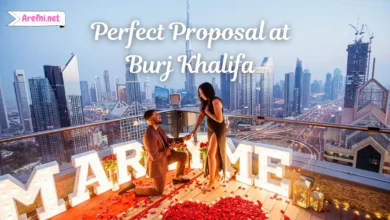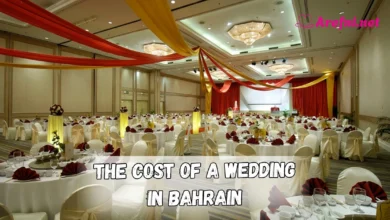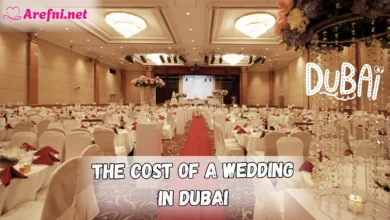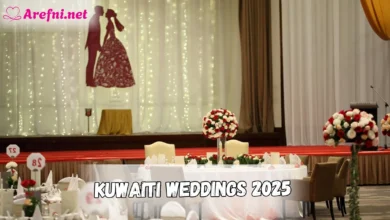Love Languages in Arab Culture
Understanding Emotional Expression in the Middle East

Love is a universal language, but the way it’s expressed varies significantly across cultures. In Arab societies, love is not only a personal emotion but a deeply rooted cultural, familial, and sometimes even political expression. From poetic declarations to acts of generosity, Arab culture holds a unique lens on how affection, respect, and romantic intention are conveyed.
Understanding love languages in Arab culture is essential for anyone in a relationship within or across the Arab world, particularly in places like Saudi Arabia, the United Arab Emirates, Qatar, Kuwait, and Bahrain. Whether you’re exploring romantic connections, planning marriage, or simply navigating emotional intimacy, knowing the local love languages can lead to stronger, more meaningful relationships.
What Are Love Languages?
The concept of love languages was popularized by Dr. Gary Chapman, identifying five ways individuals express and receive love:
- Words of Affirmation
- Acts of Service
- Receiving Gifts
- Quality Time
- Physical Touch
In Arab culture, these expressions are shaped by religious values, family traditions, gender roles, and societal expectations. The Arab world, with its deep-rooted Islamic foundation and tribal heritage, offers a rich tapestry for how love is demonstrated and appreciated.
1. Words of Affirmation: The Power of Poetry and Praise
Arabic is known as one of the most poetic languages in the world. In Arab culture, the spoken word carries immense weight. Compliments, romantic verses, and spoken declarations of love are not only common they’re expected.
Cultural Significance:
- Classical Arabic poetry is often used to express romantic admiration.
- Calling someone with terms like “Habibi” (my love) or “Hayati” (my life) is both romantic and common.
- Families value eloquence; expressing love through meaningful words shows emotional intelligence and cultural literacy.
Even in digital relationships, messages filled with poetic language or religious blessings are highly valued.
2. Acts of Service: Love through Responsibility
In Arab households, taking care of someone is one of the most respected forms of love. Whether it’s providing, protecting, or helping with daily tasks, acts of service are key indicators of devotion.
Examples in Daily Life:
- A man driving his wife or sister where she needs to go, even in places with female driving now legalized.
- Preparing meals or organizing family events.
- Taking care of financial responsibilities, such as paying for education or medical expenses.
This love language is particularly prevalent in marriage, where providing for one’s partner is seen as an essential part of the relationship.
3. Receiving Gifts: Symbolic and Cultural Generosity
Gift-giving is deeply ingrained in Arab culture. In romantic relationships, especially during engagement or marriage discussions, exchanging valuable items like gold jewelry, designer perfumes, or personalized gifts holds deep meaning.
High-Value Romantic Gifts:
- Gold and Jewelry: Not just luxury, but a form of mahr (dowry).
- Luxury Watches and Fragrances: Often given during special occasions like Eid or anniversaries.
- Symbolic Items: Custom Islamic calligraphy, love notes, or personalized accessories.
Gifts in the Arab world are a symbol of love, intention, and financial readiness for commitment.
4. Quality Time: Shared Experiences and Family Bonds
Spending uninterrupted time together can be challenging due to conservative norms in many parts of the Arab world. However, within permissible boundaries, quality time is highly appreciated.
Common Romantic Activities:
- Dining at luxurious restaurants in Dubai or Riyadh.
- Traveling together during honeymoons or family holidays.
- Visiting religious sites or family gatherings.
In more conservative countries like Saudi Arabia or Kuwait, private quality time often takes place post-marriage. Yet even in these cases, quality time is expressed through long phone calls, shared prayers, and family-involved activities.
5. Physical Touch: Expressed with Cultural Sensitivity
Public displays of affection are generally discouraged in Arab societies, especially in more conservative countries. However, within private settings, physical touch remains an important love language.
Acceptable Expressions:
- Holding hands in private
- Hugging within the family
- Gentle touch during important emotional conversations
In marriages, physical closeness is valued and considered a private but powerful form of connection. Emotional intimacy is just as important as physical intimacy.
Love and Religion: The Role of Islam in Romantic Expression
Islam plays a central role in how love is viewed and expressed. Love, especially marital love, is encouraged in the Quran and Hadith, but within defined ethical boundaries.
Key Principles:
- Modesty: Love should be expressed with respect and discretion.
- Commitment: Casual relationships are generally discouraged in favor of marriage.
- Family Approval: Seeking the blessing of family elders before deepening a relationship is essential.
Romantic love is often guided by the concept of “halal love,” where emotional and physical bonds are cultivated under the principles of respect, trust, and religious observance.
Regional Differences Across the Arab Gulf
While there are common cultural threads, each Gulf country has nuances in how love languages are expressed.
Saudi Arabia:
- Emphasis on religious alignment and family approval
- Romantic language used discreetly
- Gift-giving and acts of service highly valued
United Arab Emirates:
- Cosmopolitan influence allows more modern expressions
- High-end gifts and experiences symbolize love
- Social media displays of affection are more common
Qatar:
- Mix of tradition and modernity
- Time spent in family-oriented settings is meaningful
- Gifts like gold and perfumes play a large role
Kuwait:
- Youth often express love through digital platforms
- Poetry and song dedication are popular
- Family introductions still crucial
Bahrain:
- Liberal compared to other Gulf nations
- More public expressions seen, especially among younger couples
- Quality time in cafes and beaches is common
The Influence of Social Media on Arab Love Languages
Digital platforms like Instagram, Snapchat, and WhatsApp have created new ways for couples to communicate love in the Gulf region. From romantic reels to emoji-laden text messages, the love language of affirmation has gone digital.
Trending Digital Love Practices:
- Matching profile pictures or usernames
- Sending digital gifts or surprise deliveries via apps
- Creating romantic TikToks with Arabic love songs
Social media has also amplified expectations around luxury gifting and lifestyle, often associating love with visual displays of affection and financial capacity.
Modern Love vs. Traditional Love
Arab millennials and Gen Z are redefining what it means to love and be loved. While many still respect traditional values, there is an increasing openness to emotional vulnerability, long-distance love, and non-material expressions of affection.
Then vs. Now:
- Traditional: Proposals through family, arranged meetings, conservative courtship
- Modern: Online dating apps, love through shared interests, gradual emotional development
However, the bridge between tradition and modernity is often navigated carefully to maintain social harmony.
The Heartbeat of Arab Romance
Love in Arab culture is a harmonious blend of passion, responsibility, and respect. From the poetic language of courtship to the significance of financial readiness and emotional commitment, Arab love languages reflect a society where emotion is sacred and relationships are foundational.
Whether through a surprise gift of gold, a prayer uttered together, or a beautifully worded WhatsApp message, expressing love in the Arab world is both an art and a legacy. Understanding these cultural dynamics not only enriches romantic relationships but honors the deep traditions that shape them.
For anyone dating, engaged, or married in the Gulf, fluency in Arab love languages is a powerful key to emotional intimacy, long-term connection, and meaningful romance.





